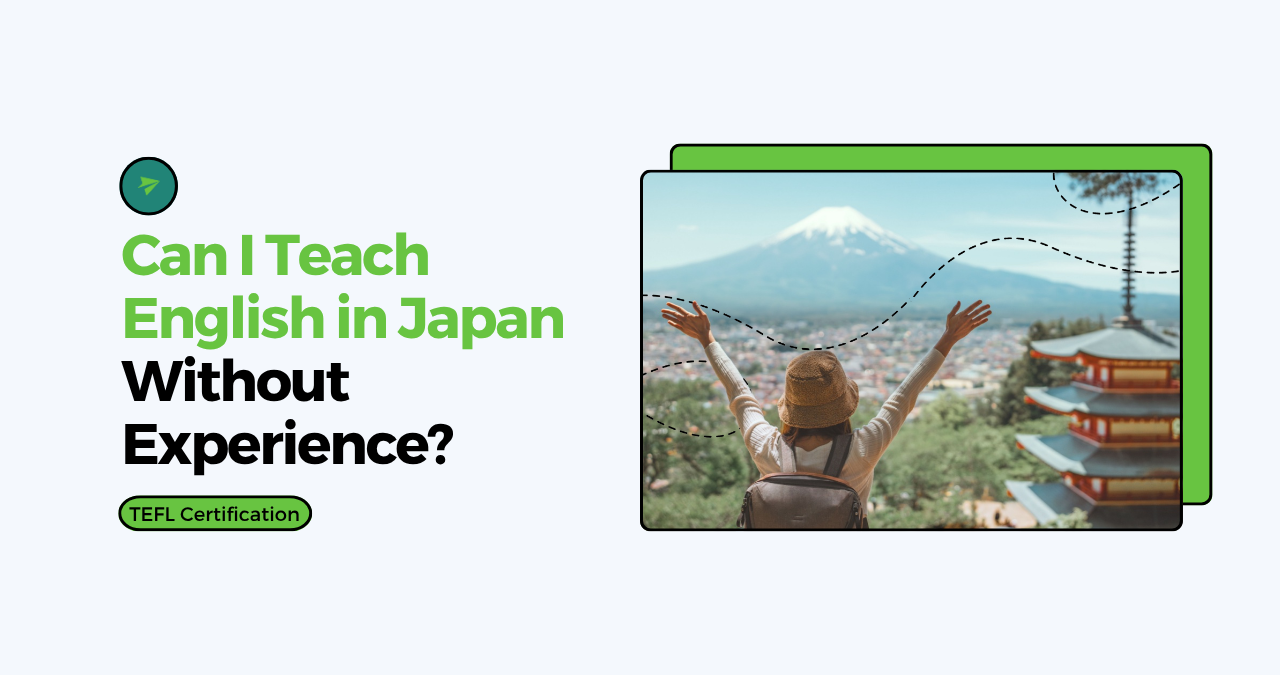So, you want to teach English in Japan but you’ve never set foot in a classroom as a teacher? You’re definitely not alone. And more importantly, you’re not out of the running.
Japan is one of the most welcoming places in the world for new teachers. A lot of schools are looking for the right kind of person more than a picture-perfect resume. If you’re enthusiastic, open-minded, and willing to learn, you’re already starting strong.
Here’s what you should know if you’re thinking about making the leap.
What Are Japanese Schools Really Looking For?
Some entry-level teaching jobs in Japan don’t always require previous teaching experience. What they do care about is whether you meet the basics and come across as someone who will thrive in the classroom.
Some typical must-haves:
- A bachelor’s degree (any major is usually fine)
- A TEFL certification
- Fluent English proficiency
- A clean background check
- A positive, flexible attitude
If you’re professional, presentable, and show genuine interest in the culture and the job, you’re already standing out.
First-Time Friendly Teaching Jobs in Japan
Here are two options that are especially popular with folks just starting out:
Eikaiwa (English Conversation Schools)
Think small-group or one-on-one English lessons in after-school programs for kids, teens, or adults. The focus is on conversational English. These schools often offer paid training and are usually located in cities.
ALT (Assistant Language Teacher)
This is a great option if you prefer being in a classroom alongside a Japanese teacher. You’ll usually work in public elementary or junior high schools and support lesson delivery. Programs like JET or companies like Interac are common pathways.
How to Stand Out (Even With Zero Teaching Experience)
Just because you haven’t taught before doesn’t mean you don’t bring something valuable to the table.
Here are a few ways to make your application shine:
Get TEFL certified
A 120-hour TEFL course shows you’re serious and gives you some classroom basics to lean on. Many schools prefer (or require) it, especially if you’re applying from abroad.
Highlight your transferable skills
Have you ever trained someone at work, tutored a sibling, worked in customer service, or led a camp group? That counts.
Show up strong in the interview
Confidence, clarity, and curiosity go a long way. Practice a few common interview questions, and make sure you come across as someone who can hold a class’s attention.
Film a short self-intro video
This is super common for Japanese teaching jobs. Keep it simple: introduce yourself, share a bit about why you want to teach in Japan, and smile. Think: friendly and easy to understand.
Brush up on classroom basics
Even a quick online module on classroom management or ESL teaching techniques can show initiative.
What the Hiring Process Looks Like
Step 1: Apply
Start looking 3–6 months before you want to leave. You can browse openings on sites like Teach Away.
Step 2: Interview
Most interviews happen over Zoom or a similar platform. It might just be one round or a couple.
Step 3: Job Offer + Visa Process
Once you accept the offer, your school will help you with the paperwork to get your work visa.
Step 4: Get ready to move
Many schools will help with housing or at least point you in the right direction. You might also get a bit of paid training before you jump into the classroom.
What to Expect Once You’re There
Salary
Entry-level salaries usually fall between $1,500-$1,700 USD per month.
Housing
Some schools offer staff apartments or subsidized rent. Others will help you find a place nearby.
Vacation
Public school ALTs (Assistant Language Teachers) often get more time off than private academies, but it varies. Check your contract carefully.
Support
If you go through a program like JET or a dispatch company, you’ll usually have a network of other teachers and support staff.
Lifestyle
Japan is clean, efficient, and incredibly rich in culture. Life in a big city like Tokyo is totally different from teaching in a rural area, but both have their perks.
The Bottom Line: You Can 100% Do This
A ton of first-time teachers start their journeys in Japan every year. It’s a great place to gain experience, grow your skills, and have an unforgettable adventure.
If you’re curious, committed, and willing to step outside your comfort zone, you’re more than qualified to take the leap.
Feeling ready?
Check out open teaching jobs on the Teach Away job board, or build your confidence with a TEFL certification designed to help you get hired.



